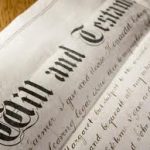The Answer May Not Always Be What You Expect
Simply “Probate” means at death an estate (the deceased person’s property) is administered and supervised by the court, often called probate court. The court will make sure the Last Will is administered correctly and if there is no will state law is followed by a court appointed administrator.

Many people ask us how they can “avoid probate” before they understand what it means and how long it will actually take. For example in Pennsylvania it is a fairly straightforward process, many cooperative families can “opt out” of much of the process, and it takes as few as several months and can be helpful in making sure the executor, the person who distributes the property, does what the Last Will says to do and that he or she is protected from subsequent claims and law suits.
Many people also do not know that most property transferred at death passes outside of probate through a non-probate mode of transfer. Here are some examples of things that do not go through the probate process and may not even be distributed according to the will.
1. Joint tenancy property both real and personal
The decedent’s (the person who has just died) interest ends at death. The survivor has the whole property. Bank accounts, brokerage and mutual fund accounts, and real estate are often held in joint tenancy, particularly between married couples. At the death of the first, this property generally transfers directly to the surviving joint account holder or joint tenant on the deed no matter what the will says. These assets are still taxable for both State Inheritance Tax purposes and possibly for Federal Estate Tax purposes. And, who pays that tax is often a function of the tax clause in the will. Be sure to get good legal advise on this issue.
2. Life Insurance
Life insurance proceeds on the decedent’s life are paid by the insurance company to the beneficiary named in the insurance contract. However, while such policies are not taxed by Pennsylvania, they are taxed for Federal Estate Tax purposes.
3. Bonds & Contracts with payable on death (POD) provisions
Federal E and H Bonds, and pension plans often have survivor benefits as do tax-deferred investment plans such as IRA’s 401(k)’s, and brokerage accounts if there is a death beneficiary. While the beneficiary of such accounts receive the money directly, the proceeds may or may not be taxable for Income Tax and or Inheritance and Estate Tax Purposes.
4. Interests in Trust

When property is put in trust, the trustee holds the property for the named beneficiaries. The trustee in accordance with the terms of the trust instrument invests, holds and or distributes the trust property to the beneficiaries.
To read our trust guide How To Find The Right Trust For You click here.
Property in a testamentary trust does pass through the probate process but an inter vivos trust during the decedents’ life does not. To read more about inter vivos gifts read Should I Make Gifts Now As Part Of My Estate Planning.Such trusts if revocable during your life are Taxable but irrevocable trusts may avoid taxation for Death Tax purposes.
Distribution of non-probate property does not involve a court proceeding. The controlling contract, trust, or deed terms control the distribution of the property.
Distribution of probate property under a will or an intestate estate (someone who dies without a will) may require a court proceeding involving probate of a will or finding of intestacy followed by appointment of a personal representative to settle the probate estate.
Find out the best way to utilize both the probate and non-probate process in planning your comprehensive will and trust.
A successful comprehensive estate plan takes all of these factors into account when organizing your will or trust.
Whitney O’Reilly



